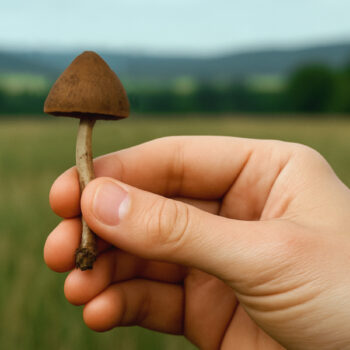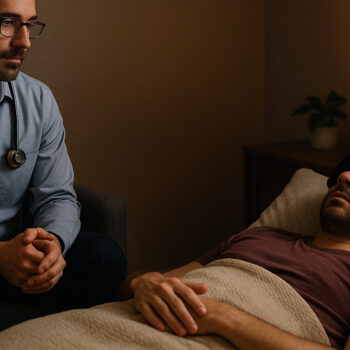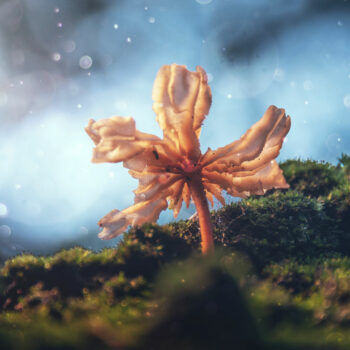Treating Alcoholism with Psilocybin
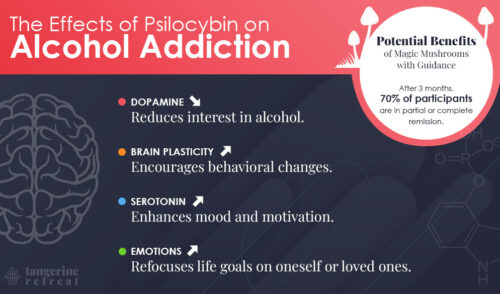
Alcohol dependence affects 280 million people worldwide. It’s a significant issue because alcohol withdrawal is a challenging process, with a high risk of relapse. As a result, mental health research is focusing on the effects of psilocybin on addiction. Magic mushrooms offer hope for real progress in the treatment of alcoholism.
Beyond the hopes, can psilocybin cure alcoholism? Is it a viable therapeutic pathway?
A Psychedelic Substance to Reduce Alcohol Consumption?
Alcoholism: A Disease with Many Repercussions
An alcoholic person undergoes a heavy and self-destructive ordeal for which society’s judgement is often unforgiving. While the effects of alcoholism can be extremely severe for the person themselves, the repercussions are equally significant for those around them.
Several types of dangers related to alcohol dependence can be identified:
- Health risks: Addiction increases the likelihood of cancer, cardiovascular, neurological, or liver diseases.
- Mental risks: Depression, cognitive disorders, psychosis, suicide.
- Behavioral dangers: Domestic violence, household or road accidents, risky behavior, indebtedness.
- Social consequences: Social isolation, job loss.
Treating the Disease
The principle of therapy is not to judge how people act but to help them change. Treating alcoholism involves accepting the illness, relieving guilt, and undergoing therapy. Relieving guilt is important because alcoholic patients tend to have a very negative self-image. It’s now understood that genetic factors explain many addictions. Furthermore, alcohol itself changes the brain to create dependence, not the person.
Psilocybin in Question
Recovering from alcoholism is a process that requires a lot of willpower because the brain must reconfigure itself, and this takes time. This is where psilocybin-assisted therapy becomes interesting, as researchers are exploring whether it could accelerate and solidify withdrawal.
How Does It Work?
A Treatment for Alcohol Addiction?
Current treatments for alcohol addiction show mixed results, especially concerning relapse. Researchers are continuing their search for new approaches, including psilocybin mushrooms. Clinical studies are gradually revealing how this psychoactive molecule affects the brain.
A Concrete Example of Realisation
A magic mushroom experience lasts 4 to 6 hours and induces strong sensations and emotions. Psychological blockages temporarily ease, giving way to a state of altered consciousness: better understanding, new ideas, or unexpected thoughts.
For someone who drinks, the psychedelic trip changes their perception of themselves and the world. They may suddenly realise they need to stop self-destruction for themselves, their children, or their partner. They might also understand why they are dependent or feel capable of moving toward recovery. Here’s how it works:
Less Satisfaction from Drinking
One of the effects of psychedelic mushrooms is that they reduce the response of dopamine D2 receptors in a brain region called the nucleus accumbens.
In simple terms, this means that after a dose of psilocybin, the pleasure associated with drinking alcohol decreases, as if it becomes less appealing. Studies suggest that regulating the brain’s reward circuit makes it easier to abstain from drinking.
A Better Mental State to Face the Challenge
Psilocybin is also known to act on the 5-HT2A serotonin receptors in our neurons.
Simply put, this psychedelic substance can modify our moods, motivation, and emotions, boosting mental well-being. In the process of reducing alcohol consumption, a better mental state lowers the need to drink and reduces the risk of discouragement. It’s the same mechanism used in treating depression with psilocybin.
Evolving Without Blockages
Finally, hallucinogenic mushrooms increase brain plasticity.
In the weeks following consumption, the brain can reconfigure itself more quickly. This capacity helps with withdrawal and establishing new habits. That’s why participants emerging from a psychedelic retreat often start therapy (psychotherapy, EMDR, hypnosis), hoping to advance more quickly with the guidance of a therapist on their journey to well-being.
How to Take Psilocybin?
There are two legal options for taking psilocybin in the context of alcohol withdrawal: a psychedelic retreat and controlled therapy.
The Retreat: A Relaxing and Low-Pressure Stay
In the Netherlands, it is perfectly legal to consume magic truffles containing psilocybin. Several companies, such as Tangerine Retreat, offer psilocybin retreats focused on well-being and relaxation, including a ceremony supervised by professionals.
The goal is to spend a few days in a nurturing environment to discover keys to personal growth through the psychedelic journey, one-on-one discussions, and workshops, like breathwork, held on-site.
After the psychedelic experience, participants can begin traditional therapy. This helps integrate the changes and work on long-term improvement of their mental state.
Enjoy a 100% legal psilocybin experience in the Netherlands
Preparation and retreat in English
Enjoy a legal & intense experience in the Netherlands
A psychedelic retreat designed for best results. Small group, one-to-one preparation, experimented facilitators, 1 year monthly integration & awesome place !
Join us

Assisted Therapy
This is another approach, where psychoactive mushrooms are taken alone under the supervision of a psychologist or psychiatrist. Its advantage is that it specifically targets alcohol dependence or depression.
However, the main drawback is that it’s hard to access. Few countries offer this, and places are limited: you must travel to Switzerland, Australia, or Oregon to find legal and high-quality services.
Cost of Taking Psilocybin
A psychedelic retreat in the Netherlands may seem expensive: the average price is around €1800 for a 3-day stay. However, assisted therapy is far more costly, ranging from €10,000 to €20,000 in Switzerland or Australia.
Can Psilocybin Cure Alcoholism?
In addiction medicine, it is believed that an alcoholic remains one for life. The key is to help them stop drinking. In this regard, several serious scientific studies are trying to test the clinical effectiveness of psilocybin mushrooms.
The Effect of Psilocybin on Alcohol Addiction
Here is an overview of the research on the impact of psilocybin on excessive alcohol consumption. The results generally show a positive effect in a large majority of people, with a period lasting at least four weeks. So far, no study evaluates the persistence of effects beyond three months, but they may exist.
| Study | Patient Sample | Method | Results | Additional Results |
|---|---|---|---|---|
| Langone Center for Psychedelic Medicine (NYU) | 93 patients (48 on psilocybin, 45 on placebo) | Between 1 and 3 doses + psychological support | 83% reduction in consumption in the psilocybin group, 51% in the placebo group | 48% of participants achieved complete withdrawal |
| Inserm & UPJV (France) | Murine models (rats) | Direct injection of psilocybin into the nucleus accumbens (brain) | 50% reduction in consumption if injected into the left hemisphere | |
| Johns Hopkins University | 100 patients | Multiple sessions of psilocybin-assisted therapy | Significant reduction in alcohol cravings and long-term mental health improvement | Mild anxiety and temporary visual disturbances in some individuals |
| Imperial College London | 50 patients | Psilocybin-assisted therapy and brain MRI | Reduction in consumption and changes in addiction-related habits | Emotional changes and confusion during therapy sessions |
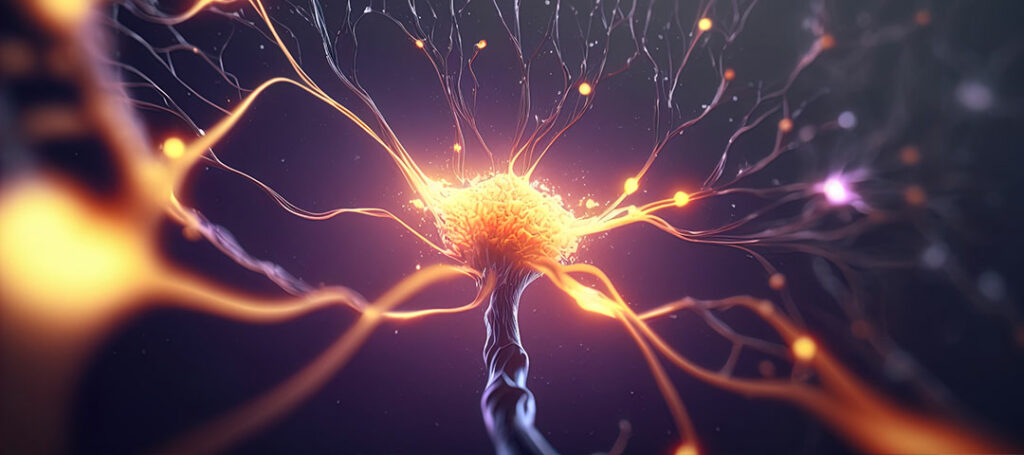
Future Prospects
A promising treatment
These renowned scientific institutions, among others, are regularly delivering hopeful news. In the near future, psilocybin could officially play a role in the treatment of alcoholism. However, for now, few countries are considering legalizing its medical use, forcing individuals seeking treatment to travel to places where the substance is legal.
Yet, psilocybin itself is not addictive, and on a large scale, its effects are unlikely to be as harmful as alcohol or tobacco—legal drugs deeply rooted in our cultures.
FAQ on Magic Mushrooms and Alcohol
The side effects of such an experience are rare and temporary: headaches, sweating, nausea, anxiety, mild paranoia. These symptoms can be amplified if the user has pre-existing contraindications.
Although relatively safe, there are some contraindications for psilocybin. The main ones are:
– Pregnancy or breastfeeding;
– Recent alcohol consumption;
– Recent use of psychotropic substances like cannabis or ecstasy;
– Taking antidepressants within the last 7 days;
– Diagnosis of psychosis in the participant or their family;
– Untreated high blood pressure;
– Liver or kidney disease.
A retreat is not a therapy but a way to create favorable conditions for beginning a therapeutic process with health professionals. The following steps can help start the process:
1. First, it’s important to talk with a doctor or therapist;
2. Always choose a legal and official structure. Support and environment are crucial for a positive experience;
3. Contact multiple institutions to get an idea of their methods;
4. Finally, after the retreat, begin therapy or medical follow-up, for example, in addiction treatment
Last updated on 10 March 2025

